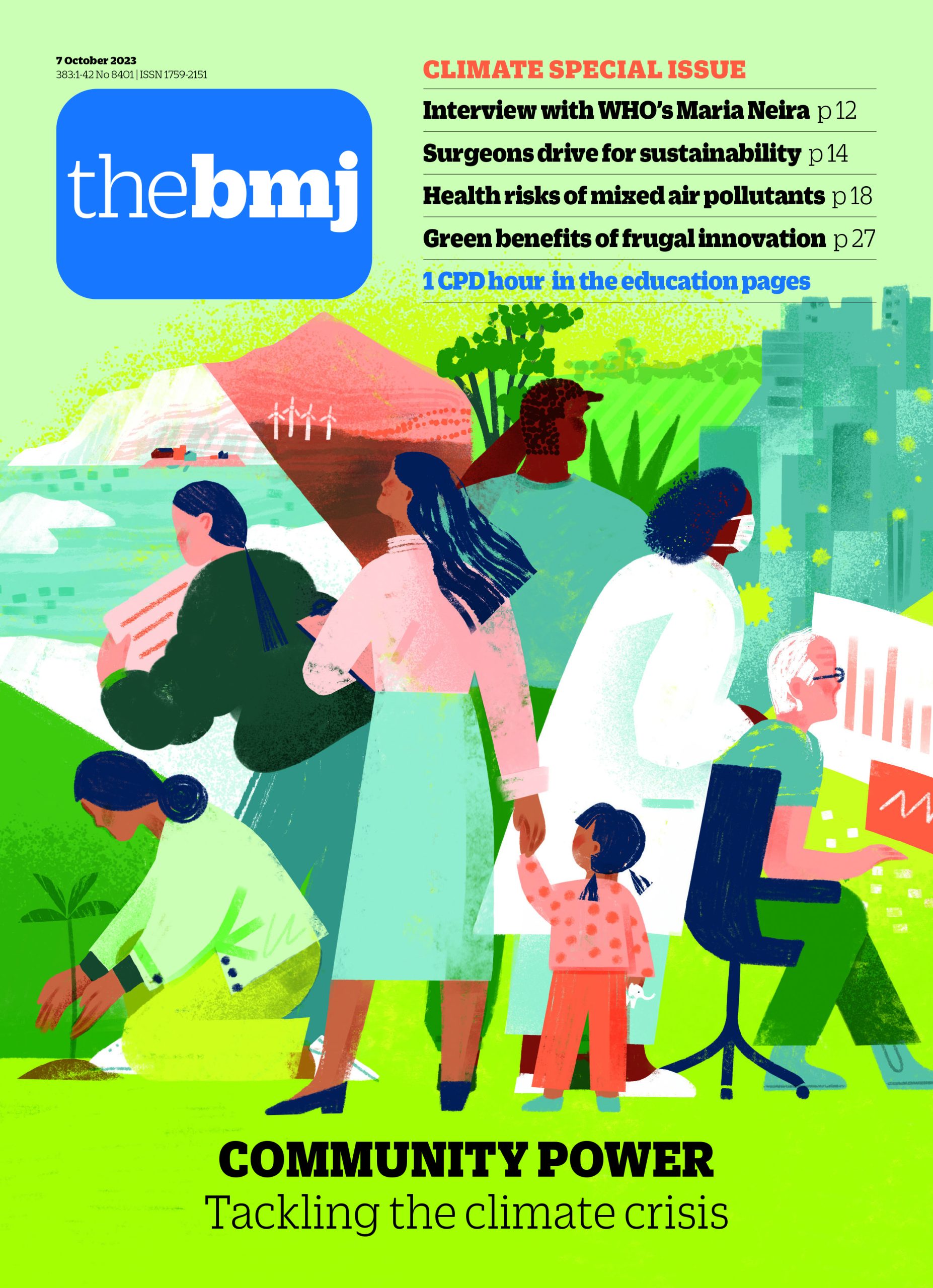Congenital disorders
How climate change is affecting child development
- Kavitha Yarlagadda, freelance journalist
- Hyderabad
- y.kavitha105{at}gmail.com
Rahul Rao, a student from Hyderabad, India, has had severe allergies and eczema since he was born. Rao was even forced to move cities in the middle of college. “I had to move from Mumbai back to my hometown of Hyderabad because the extreme humidity on the coast led to flare ups,” he says. The flare ups were so serious that he had abrasions and bruises all over his body and loss of appetite resulted in a 15 kg weight loss. All this affected his grades and the move set him back an academic year.
Rao is just one of many who are the collateral damage of climate change. Extreme weather events—such as the heatwaves seen in India and other countries during the past few years—increase the risk of respiratory diseases because of exposure to air pollution, smoke, and other particles.1
The presence of sulphur dioxide, nitrogen dioxide, and particulate matter in the atmosphere are known to aggravate pollen allergies. So, with increasing air pollution the frequency of pollen allergies is also on the rise.2 “Findings show that ozone in particular increases symptom severity …

